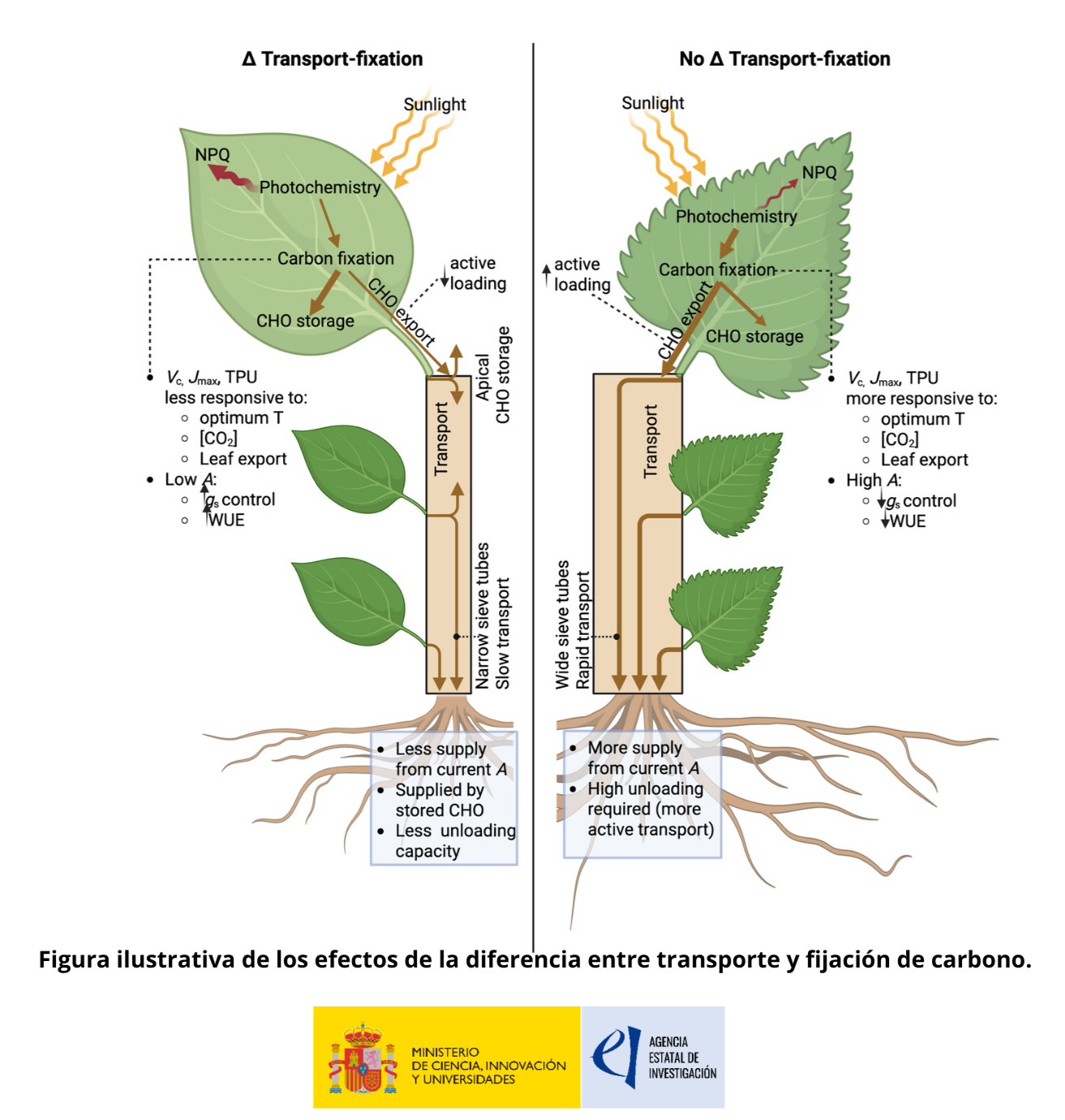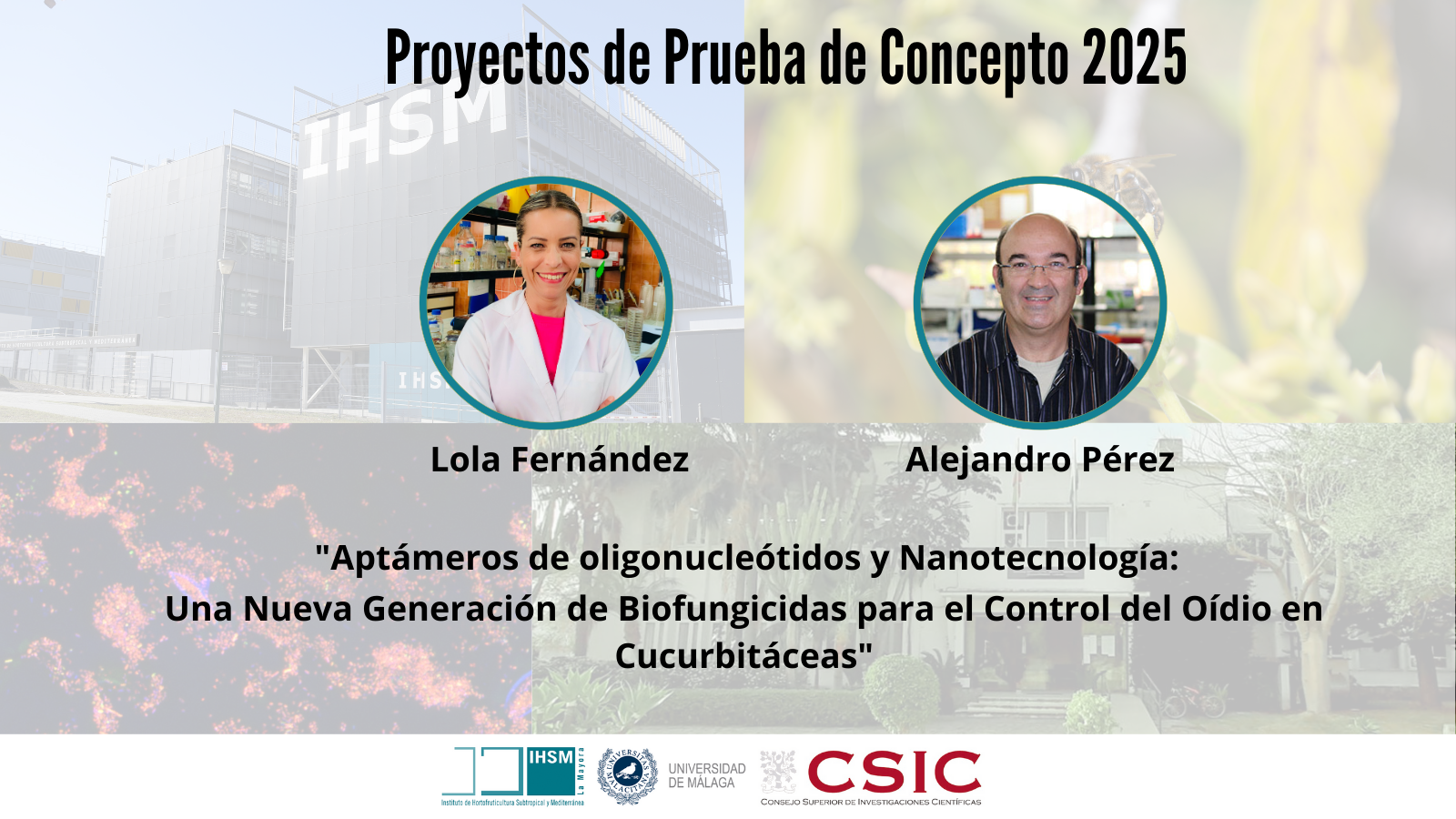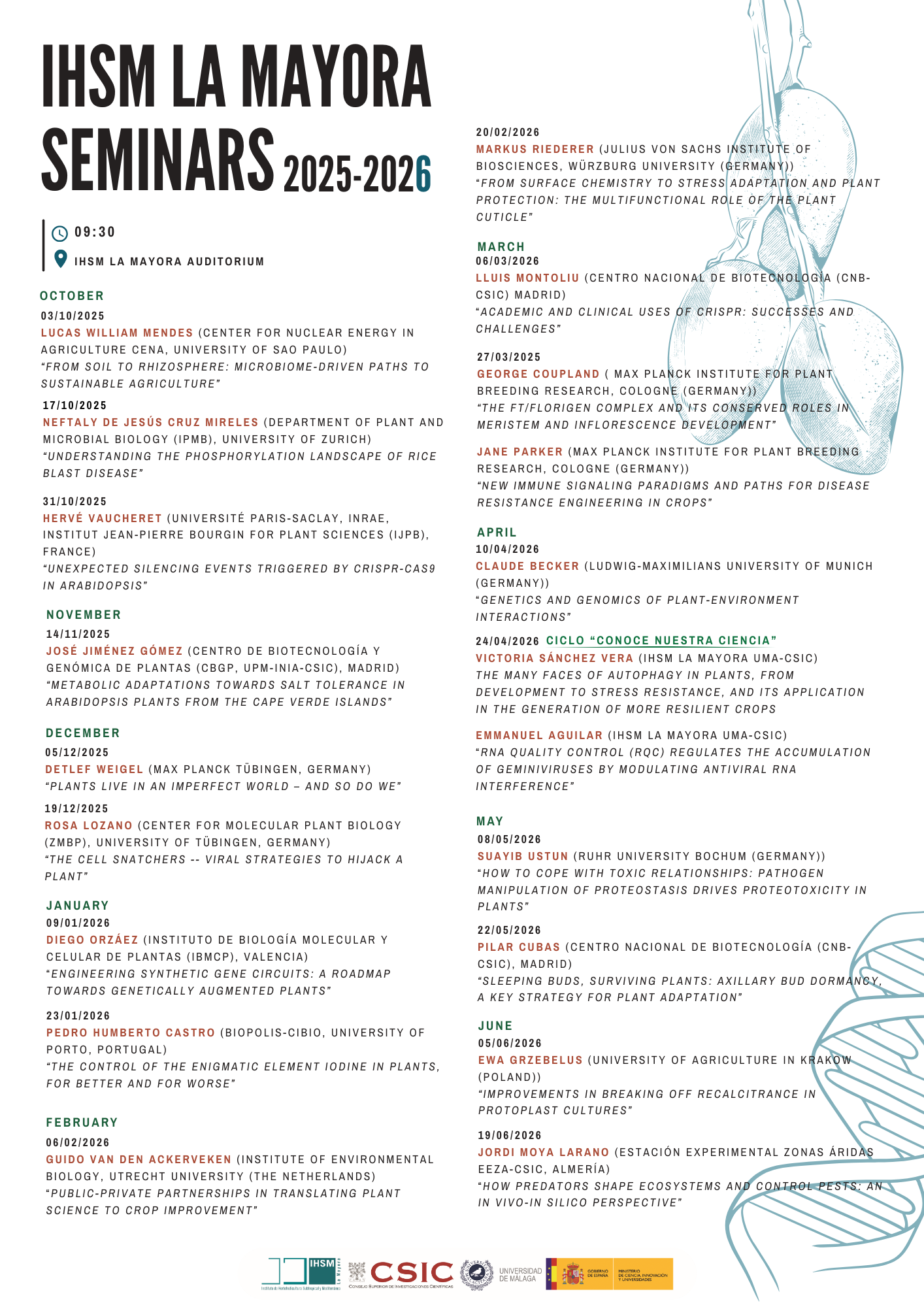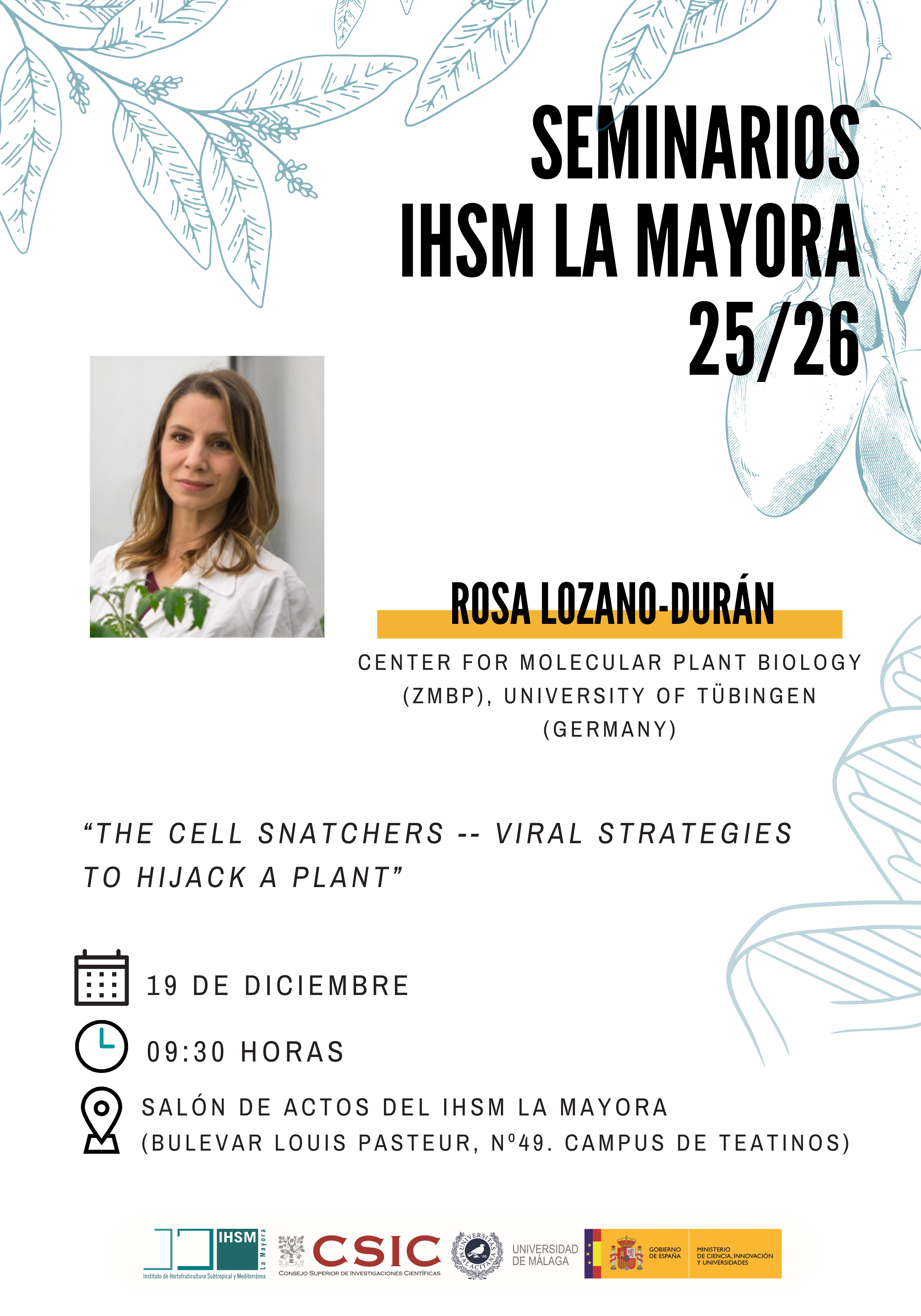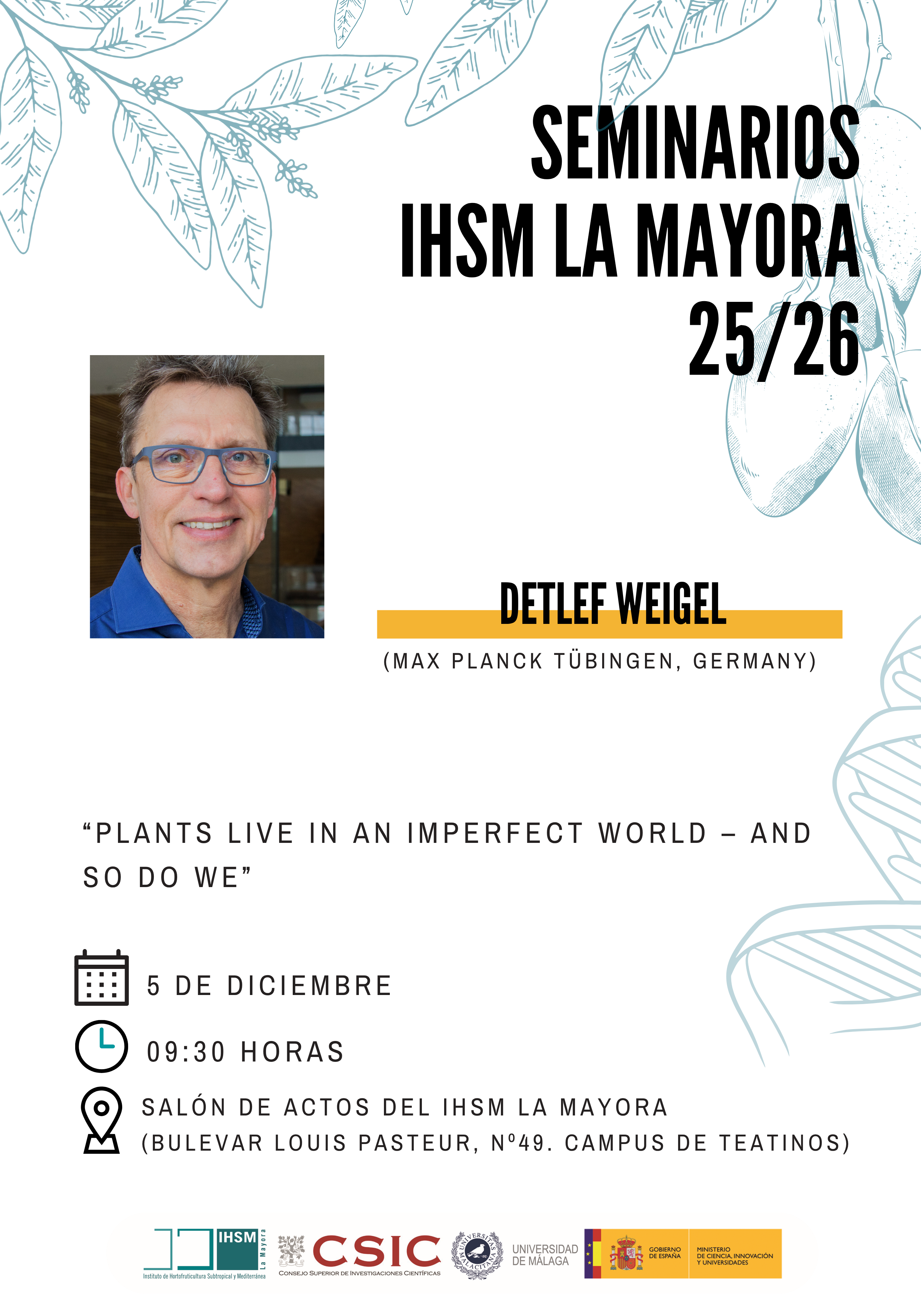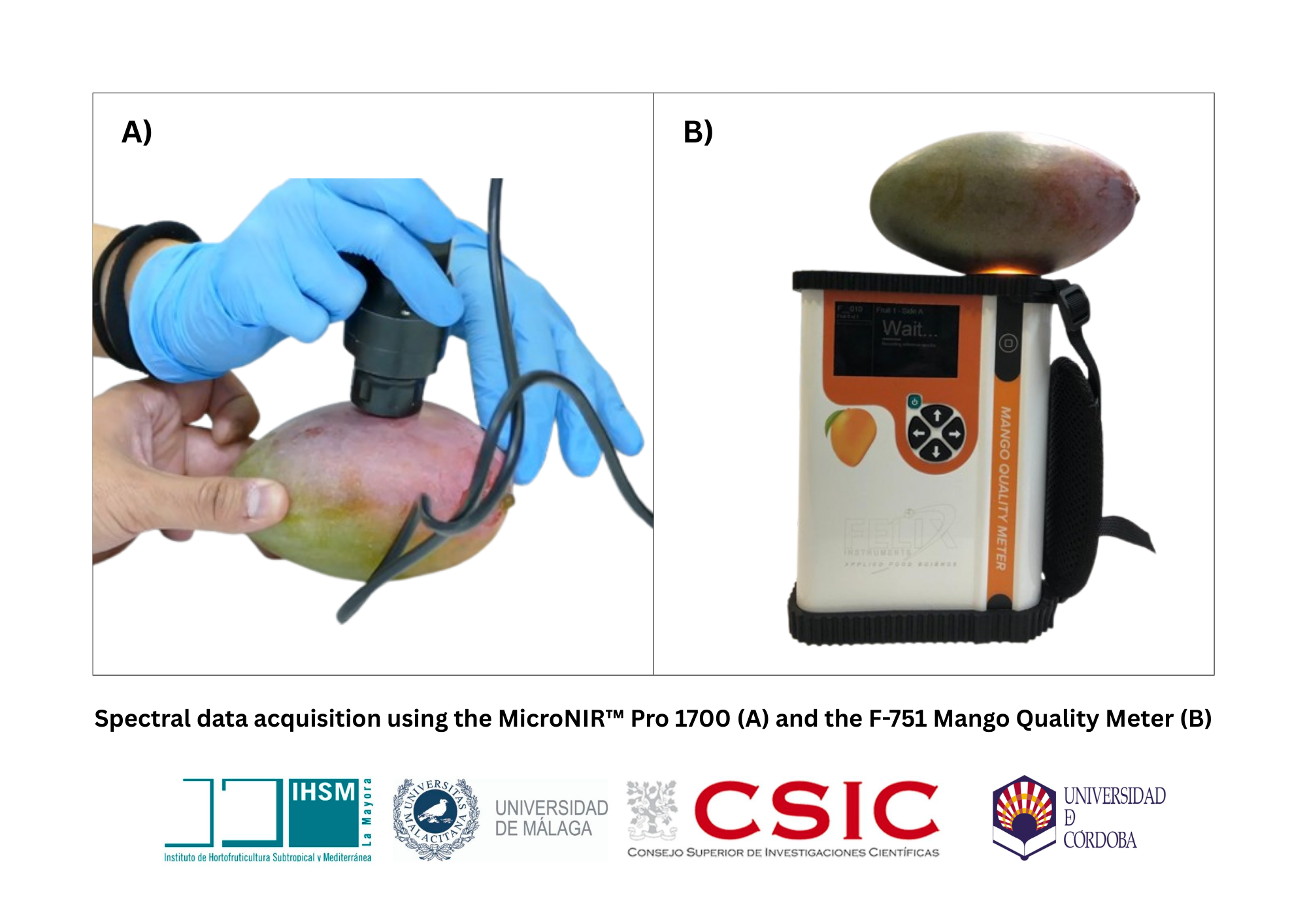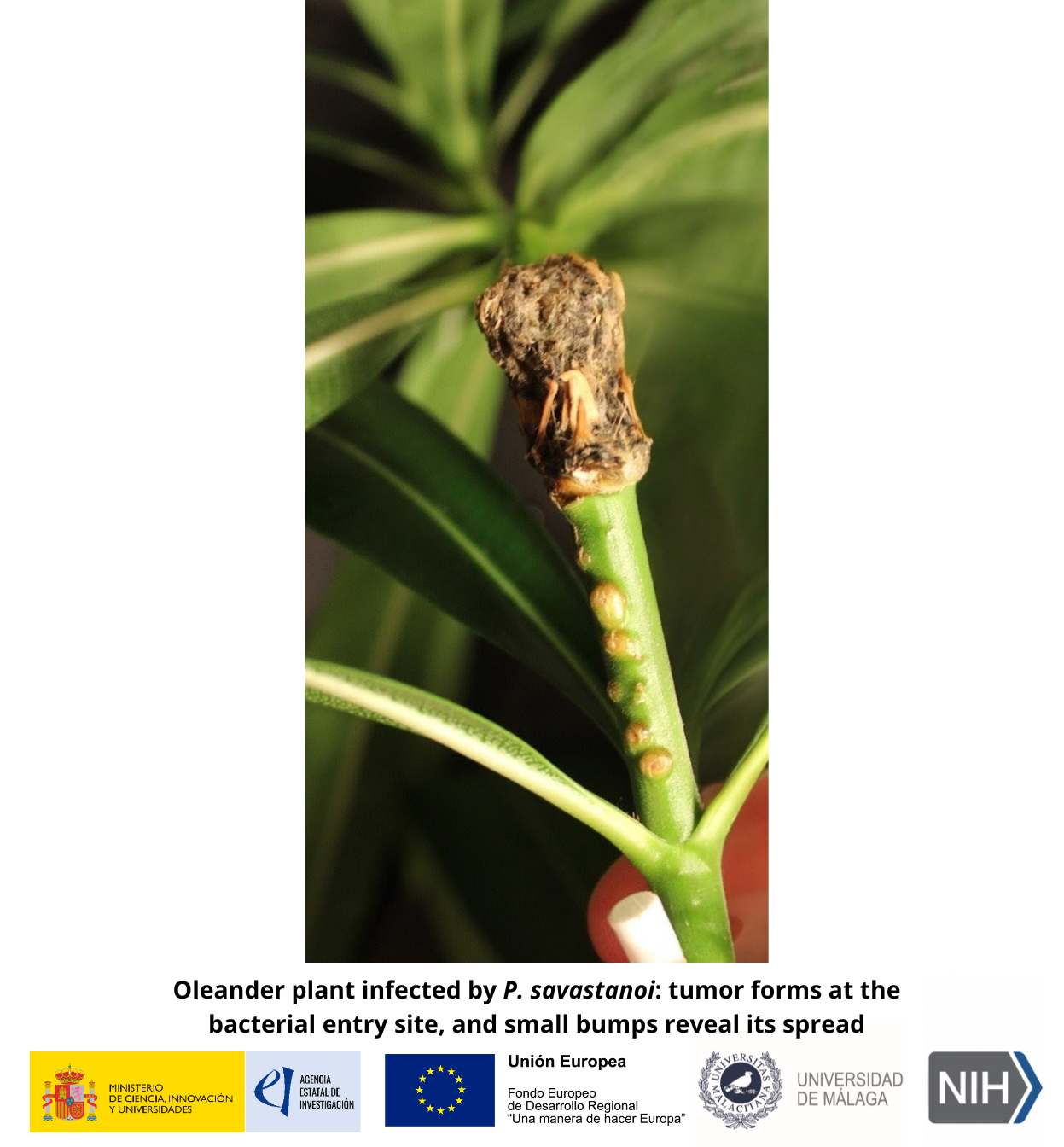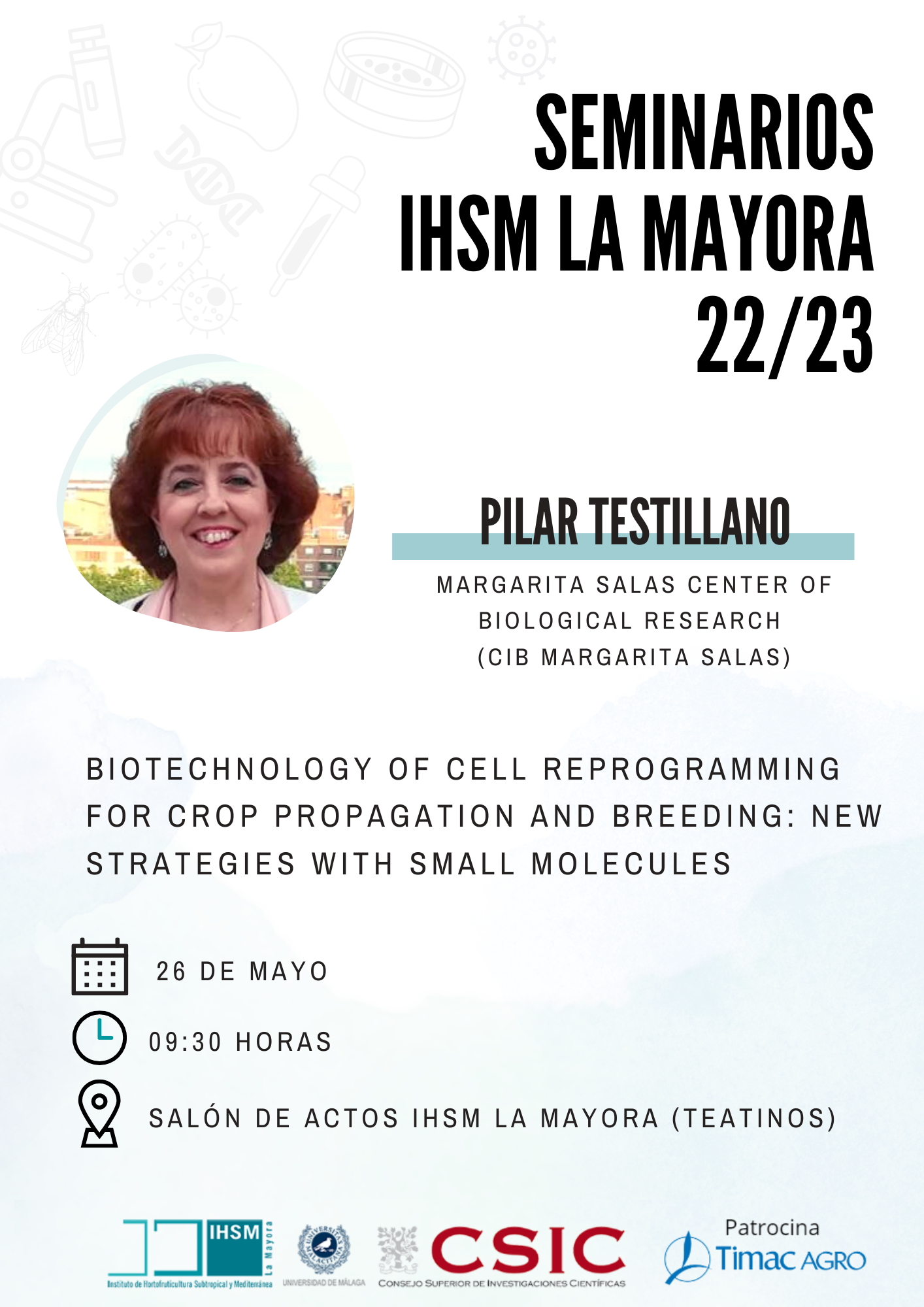
Seminarios IHSM La Mayora - Pilar Testillano (CIB Margarita Salas)
Biotechnology of cell reprogramming for crop propagation and breeding: new strategies with small molecules In vitro plant regeneration, through direct or indirect somatic embryogenesis or organogenesis is based on induction of cell reprogramming of different kinds of somatic cells, which further give rise to vegetative organs or embryos and ultimately to plants. However current methods are extremely inefficient in many crop species of economic interest More efficient technologies for in vitro plant regeneration and propagation are urgently needed to accelerate breeding programs (by using double-haploids through microspore embryogenesis), to clonally propagate elite genotypes, and to convert gene editing or transformation events into plants with improved traits. Induced plant regeneration is a multi-factorial developmental process that is usually initiates in response to exogenous stimuli produced by hormones or stress treatments. Knowledge gained in recent years has revealed that the process involves a complex network of factors whose roles are not yet fully understood. Autophagy and specific proteases are activated upon stress favoring cell death, while cell reprogramming and totipotency are regulated by hormonal and epigenetic mechanisms. Recent advances in chemically-controlled reprogramming of mammalian cells have shown the enormous potential of synthetic small molecules to regulate cellular reprogramming. We have initiated a pioneer line of research, in collaboration with experts in chemical biology to screen novel small molecules from chemical libraries of the pharmaceutical field, to identify new chemical promoters of in vitro plant cell reprogramming and regeneration. Promising results have been obtained with several families of small molecules, also in recalcitrant systems. These findings open the way for the development of new strategies and technical innovations using novel small molecules for improvement of in vitro plant regeneration with biotechnological applications in breeding, nursery and forestry sectors.

